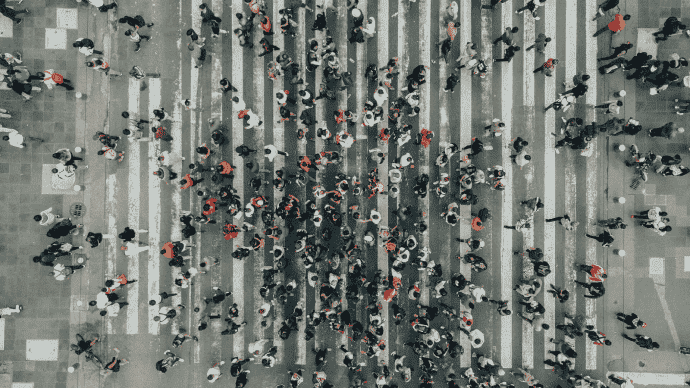Protecting the Planet Sub-pillars

Delivering Net Zero Operations
At Vodafone Egypt, we are committed to decreasing our carbon footprint and reducing our GHG emissions across all our operations. With the ICT sector responsible for an estimated 1.8% to 2.8% of global GHG emissions [1] , we have made it our responsibility to keep our emissions in check as we move towards a more digital society. Following the Vodafone Group’s Climate Transition Plan which outlines the actions to take to reduce emissions, we aim to achieve net zero scope 1 and 2 emissions in our operations by 2035.<br> <strong>Driving Energy efficiencies</strong><br> Our data centres are at the core of several new initiatives to decrease our emissions. Over the course of the past few years, we have introduced several new methods to optimize energy use and ensure efficient operations year-round. We have an energy-focused business intelligence tool to monitor consumption rates, set baselines, and pinpoint areas for improvements through cutting-edge data analytics. Since its launch, this tool has enabled us to reduce our energy use and obtain our <strong>ISO 50001</strong>recertification. We also pay close attention to energy efficiency at our headquarters although our Smart Village campus does not constitute a major component of our energy consumption. Our C2 building in our headquarters, specifically, maintained Leadership in Energy and Environmental Design <strong>(LEED) Gold Certification</strong> for operations and maintenance. This certification is a testament to the high standards with which our building was designed, and our adherence to sustainability best practices with regards to energy efficiency, water preservation, waste reduction, harnessing daylight, and making sustainable material choices in our construction process.<br> <strong>Switching to renewables</strong><br>Sourcing and utilizing renewable energy are imperative to achieving our goal of net zero emissions. Our approach to renewable energy is split into two main factions: investing in renewable alternatives to our diesel generators and switching to renewables in our grid-supplied electricity. Therefore, we have invested millions of EGP in renewable energy purchases, and in parallel, we signed in 2022 a Power Purchase Agreement (PPA) with the New and Renewable Energy Authority (NREA) for the provision of renewable energy for our on-grid electricity supply. The agreement entitles Vodafone Egypt to at least 260 GWh of electricity from the NREA’s renewable projects. Following this arrangement, 100% of our on-grid electricity consumption is currently sourced from renewable sources and with this we achieved our target to supply 100% of electricity from renewable sources by 2025.<br> <strong>Managing diesel use</strong><br> Recognizing that 99% of our scope 1 emissions are diesel-based, we launched a diesel reduction programme in 2019 which included the adoption of both renewable and hybrid solutions and the electrification of our off-grid sites. The programme continues to post positive results, with a 1.8-million-litre reduction in diesel consumption in FY 2024 compared to the previous year. We newly adopted biofuel technology to power our off-grid network sites reduces our carbon emissions, replacing traditional diesel generators with greener alternatives. We also encourage our employees to switch to Electric Vehicles, by installing 12 electric vehicle charging stations on our premises to serve our employees.<br> <strong>Working with partners to reduce scope 3 GHG emissions</strong><br> Scope 3 includes indirect emissions that we may not necessarily control but are able to influence. These emissions typically include purchased goods and services, capital goods, as well as fuel and energy-related activities. Firstly, we engage with our suppliers starting from their recruitment, assessing their methods and recommending potential energy efficiency improvements. Secondly, we develop digital technologies to empower our customers’ digital transformation journeys in the healthcare, agriculture, education sectors and beyond. These digital technologies allow paperless operations, energy tracking and optimization, in addition to a host of other services.
CTA
Promoting Circularity
As a telecom company, e-waste is a core environmental issue for which we have launched several programmes and initiatives in our mission to minimize our environmental impact. In dealing with e-waste, we encourage circularity, a key enabler of our planet strategy. <br> <strong>Circularity of devices and network waste</strong><br> Through circularity, we are able to effectively consider the full lifecycle of our resource, eliminating waste and reducing our carbon footprint further. Our circularity approach focuses on two major pillars: network waste and devices. We meticulously track and measure our resources and ensure the efficient disposal of all network waste to minimize their environmental impact. In doing so, we have set standards for the recycling of obsolete equipment responsibly using registered and approved recycling agencies. A result of these standards, we successfully recycle In order to promote device circularity and make use of older devices, we partnered with the Egyptian Ministry of Environment, the UN Development Programme and the Federation of Egyptian Industries to introduce the e-TADWEER solution. e-TADWEER enables individuals to recycle their electronic waste and receive exclusive vouchers in return. 100% of our net work waste every year.<br>In order to promote device circularity and make use of older devices, we partnered with the Egyptian Ministry of Environment, the UN Development Programme and the Federation of Egyptian Industries to introduce the <a class="text-underline color-red" href="https://www.etadweer.com/">e-TADWEER solution</a>. e-TADWEER enables individuals to recycle their electronic waste and receive exclusive vouchers in return.<br> <strong> Managing general waste</strong><br>We implement programmes to manage general waste both at our headquarters and at our retail stores. At our headquarters, we manage all our waste responsibly, prioritizing recycling and safe disposal of all our waste and promoting sustainable practices in accordance with our LEED certification. We have also continued to reap the benefits, and build on, the initiatives we’ve launched in recent years. For example, our Haystack mobile application has facilitated the transition towards a digital environment, allowing our users to create and share digital business cards, store paper cards digitally, all while integrating with hundreds of business tools including Hubspot, Slack, and Salesforce, eliminating the need for paper business cards and their associated waste.<br><strong>Using water responsibly</strong><br> While our industry is not specifically water-intensive, we still aim to responsibly consume the scarce resource, and eliminate waste where we can. For this reason, we have developed digital solutions and IoT technology to assist our enterprise customers in reducing their water consumption. To manage our own operations, we activated a water control system on our premises, aligned with the water usage effectiveness sustainability metric. Meanwhile, we installed traditional water meters across our buildings and core sites to make sure we are able to accurately track and report our consumption.
CTA
Enabling the green transition
We contribute towards providing the technology and connectivity needed to transition to a more sustainable future. We partner with customers that seek to decarbonise their own businesses, harnessing the power of technology to make their operations smarter and more efficient, whilst lowering dependency on fossil fuels and accelerating the transition to renewables. <br> <strong>Managing climate-related risks and opportunities</strong><br> We are planning to include climate risks in our risk assessment, as well as identifying all new climate-related innovations and opportunities.<br><strong>Advocating for change - Helping customers reduce their planetary impacts</strong><br>By integrating sustainability considerations such as circularity into the design of our own products and services, we can help businesses reduce their environmental impact even further. We want our customers to see us as a partner for positive impact. We seek to earn their trust by providing them with environmentally responsible digital connectivity, products and services.<br>An example of that, to reduce our consumption of single-use plastics, we were the first Egyptian telecommunication company to launch the eco-SIM card available at all retail stores and made from 100% recycled plastic.<br><strong>Reducing the environmental footprint of our products and services</strong><br> Our industry’s negative effects on biodiversity are low. Despite this fact, we take precautionary steps to ensure we do not have any inadvertent impacts. We consistently conduct environmental impact assessments and cooperate with relevant authorities in all of our site constructions. Some of our sites are in or near biodiverse areas. In these areas, we seek to understand the risk of biodiversity loss and the opportunities we have to prevent them.
CTA